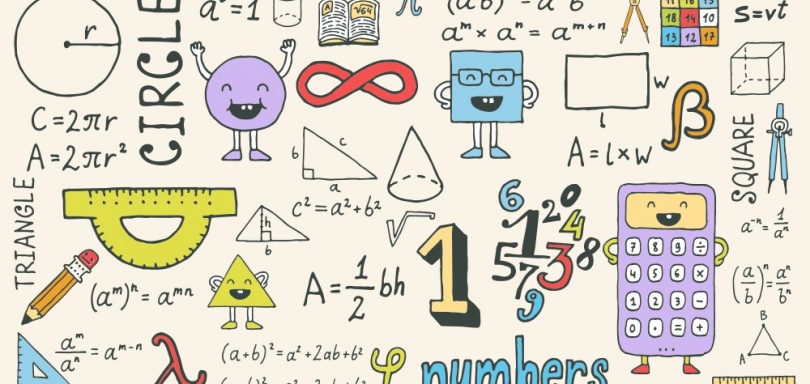Do you have a child who is struggling with Maths? Have you tried all you can to help him/her including employing a home lesson teacher to help out but you have not noticed any significant improvement in your child’s performance? Will you really like to help your child overcome his/her Maths nightmare forever?
If you answer yes to any of the above questions, I want to assure you that after reading this piece, you will be able to help your child overcome his or her maths challenges.
How Am I So Sure?
My name is Biodun Omosaku, I am the MD/CEO MathsPlus Nigeria, a leading accelerated learning outfit based in Nigeria, West Africa. I am also the author of the popular book – MATHS TRICKS FOR CHILDREN, Maths Made Easy Video Series and Nine other books.
I set out my profile so that you can know that this is my area and I know what I am talking about. These are the same techniques I have used to help many other children to overcome their learning challenges. This is what gives me the confidence that these three techniques will help your child overcome his or her Maths challenges.
Every Child Is Born With Maths Genius
Let me set the record right first. Every child is born with Maths genius. I mean every child! It is called CURIOSITY. Every child is born curious. That is why children ask a lot of questions.
A research on this subject indicated that in the average, a four years old child asks 437 questions per day. Can you imagine how curious they are? The sad news is that, by the time they are ten years old, they ask less than twenty questions per day. They would have been shut down by their parents or teachers – killing their natural curiosity (their natural Maths Geniuses)
Can you see how many children with great potential have been “de-genius” by their parents and ignorant teachers. Nurturing their curiosity is the best way to build their inborn intelligence for Maths.
Without wasting any time, let me give you the three keys to help any child who has challenges in Mathematics.
RIGHT MINDSET IS THE KEY TO MATHS MASTERY
The reason many children have challenges in Maths is because of their mindset about the subject. Success in Maths is more about Attitude. If we can get them to develop growth mindset, many children will do great in Maths.
When we asked many children that have challenges in Maths why they do, we got responses like:
-
I don’t just like Maths
-
Maths is boring
-
It is too hard
-
My brain can’t just carry Maths
-
My teacher made me hate maths
-
I lost interest in Maths etc
All of these are dis empowering mindsets they hold about Maths that are preventing them from putting in their best into the subject. Professor Carol Dweck of Stanford University called this kind of mindset a FIXED MINDSET.
When a child has a fixed mindset, he will avoid challenges; he will not want anything that will stretch him or her beyond his comfort zone; the child will give excuses for his failure rather than taking responsibility for it; he will believe some people are born to know maths why some people are not born to.
When a child holds any of the above mindsets, forcing him or her to learn maths will not help him, employing a home lesson teacher to engage the child in the subject he doesn’t want to learn will be a waste of time and money. The first thing is to address the negative mindset.
I have worked with many children who were not doing well in Maths before we met. When we helped them develop the growth mindset about Maths, their performance suddenly jumped up.
Growth Mindset is “I can Learn Attitude; my intelligence is not fixed Attitude; I can improve Attitude.” When a child is encouraged to have this kind of belief, he is on his way to academic transformation. I have seen this happen many times.
For your child’s performance in Maths to change, he/she must change his/her attitude towards Maths first. No child attains Maths mastery with negative (fixed) mindset about Maths.
I strongly believe it is the responsibility of the school teachers and the parents to help the children develop the right mindset about Maths. Behind a successful child, there is a teacher, father or a mother.
Parents in particular need to play a vital role in this regard. We should build a home culture that foster growth mindset where children are not afraid to try, fail and learn. We should let our children know that failure is part of learning.

What You Don’t Have You Can’t Give
We cannot build growth mindset in our children if we (parents) are holding wrong impression about Maths. In my book Helping Your Child Love Maths, I explained how a parent’s mindset about Maths affects the children. Please download and read the free eBook.
Change What You Praise
To build growth mindset in our children, we need to change what we praise. We should begin to praise efforts over intelligence. Be more interested in the investment of effort your child makes rather than the correct answer. Teach them to develop the attitude of perseverance to sit with a problem till it’s solved. When your child can sit with a Maths problem and persevere until he/she solves the problem, he is on his way to maths mastery. That is the “I can do it” attitude needed for Maths mastery.
If however, you have to force your child to work maths, something is wrong with his mindset about Maths. We don’t force them to play their computer games or to watch their favorite TV program. Parents should develop their children to that level where they love maths the same way they love computer games.
When they learn to embrace Maths challenges with enthusiasm, their brain will begin to make more neuro-connectivity necessary to develop mastery of the subject. Human brain develops with challenge. When the brain is not well “disturbed” it gets weakened.
What Does Your Child Attribute Pain and Enjoyment To?
Find out what your child links enjoyment and pain to. These are the two forces that determine what we do or hate to do. When a child links pain to studying in his mind, he/she will avoid it and his performance will take a sharp downward spill. First class students attribute enjoyment to learning in their minds; they love to make new discoveries, analyze things and study patterns. The more of these they do, the more their brains will make more neuro-connections and become sharp.
This is the first step in the equation. Your child must have the right mindset about Maths for him or her to be able to master maths. Watch out for the part two of this discourse where I will show you the two other things that will help your child overcome his/her maths challenges. They are amazing things.
If you have enjoyed this discourse, please tell two parents about us. You can also see our Maths Made Easy Video Series. They are great Materials that will help your child.
To Your Success
BIODUN OMOSAKU
MD/CEO MATHSPLUS NIGERIA
0802-322-6334 (Call/WhatsApp)
Image Credit: Splash ABC












Comments